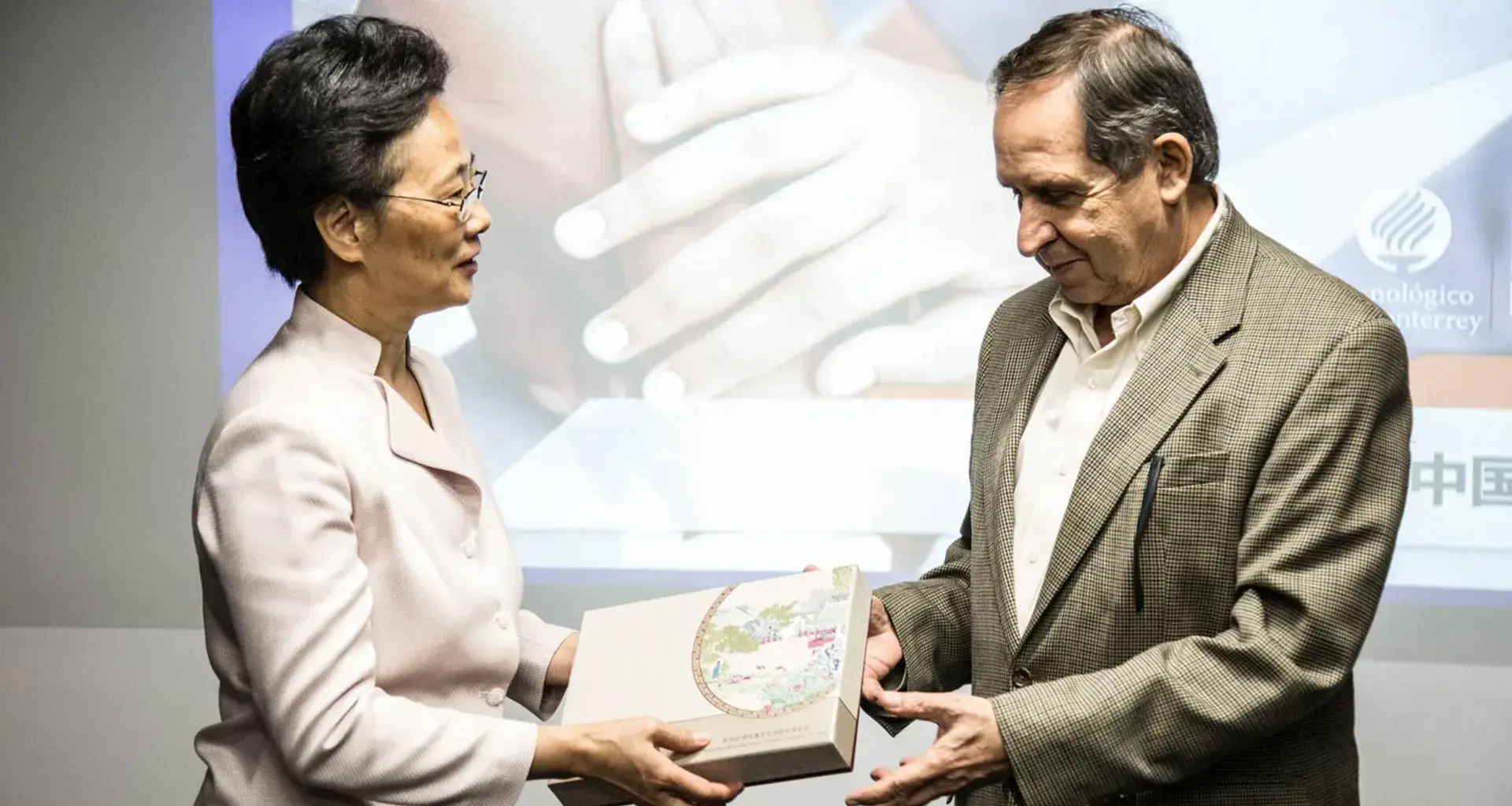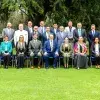Remote-controlled laboratories on the other side of the world; exoskeleton design and artificial intelligence; innovation and entrepreneurship from Asia. All of the above are examples of projects from the partnership between Tec de Monterrey and China.
On September 9, Tec directors and government, trade, and foreign affairs committee members from the province of Zhejiang, China, held talks on current and future projects from Innovation Hub Tec-China.
During their meeting at the Tec’s Monterrey campus, the Chinese delegation and Tec directors reviewed progress and reaffirmed their commitment to continue working together.
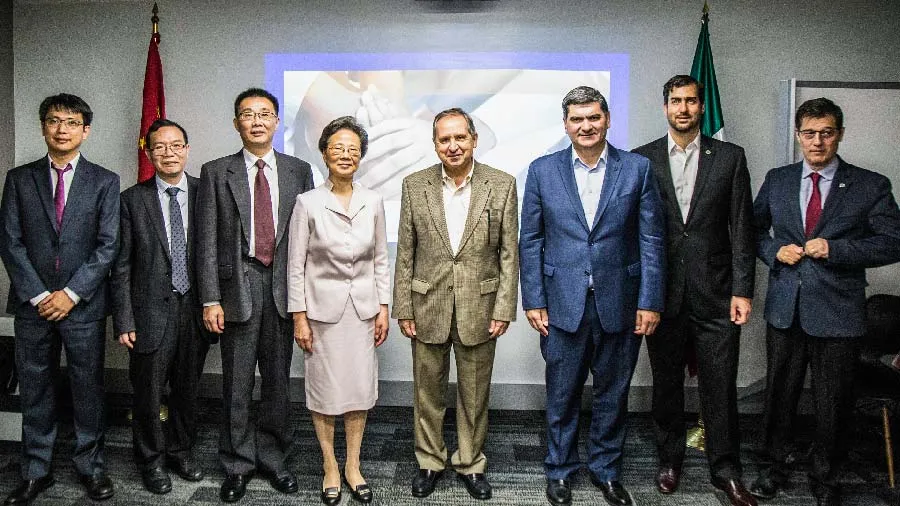
A CLICK AWAY FROM ANOTHER CONTINENT
One of the projects presented was that of Remote Laboratories, which was demonstrated by Miguel Andrés Jáuregui, a Tec de Monterrey graduate and project member.
Via computer, Miguel controlled a laboratory on the other side of the world while overseeing operations live through a camera in Hangzhou, China, where the rest of the team was located.
This project would give companies and schools the opportunity to use the system for teaching, training, and practice without the need for a physical laboratory at their facilities.
“We have many ways of learning online, with video tutorials, but what is not so common yet is applying that knowledge and seeing how it works in the real world”, said Miguel.
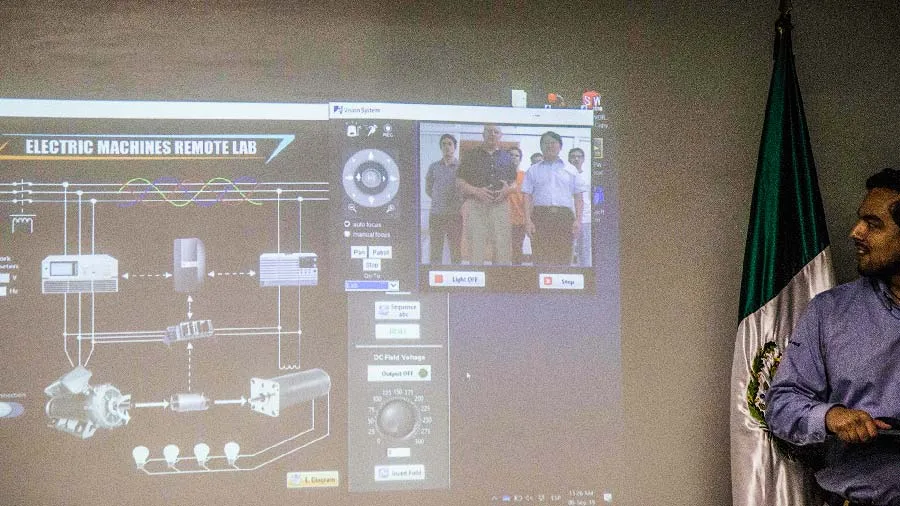
FRUITS OF HUB TEC-CHINA’S INNOVATION
Some of the Hub’s results were reviewed at the meeting, including the following:
- The signing of 6 agreements with universities, companies, and government.
- Industrial design of exoskeletons.
- Patent and licenses for the Remote Laboratories project.
- Recruitment for startups in Hangzhou.
Also of note was the fact that 3 technology-based startups have been incubated in the Hub to date: Global Nano Additives, Vaccitec Technologies, and a joint venture with Zhongxin Tech.
The latter is developing a transportation system with artificial intelligence, which would allow frozen products, food, and even water to be transported efficiently.
This system, adapted for trucks, includes filters, temperature regulation, and aeration of products while they’re being transported, at a lower cost and a shorter operating time.
The results were presented by Junfeng Feng, Hub Tec-China consultant for Startups and Investments and Patricia Mora, from the Global Innovation Hubs area of Tec de Monterrey.
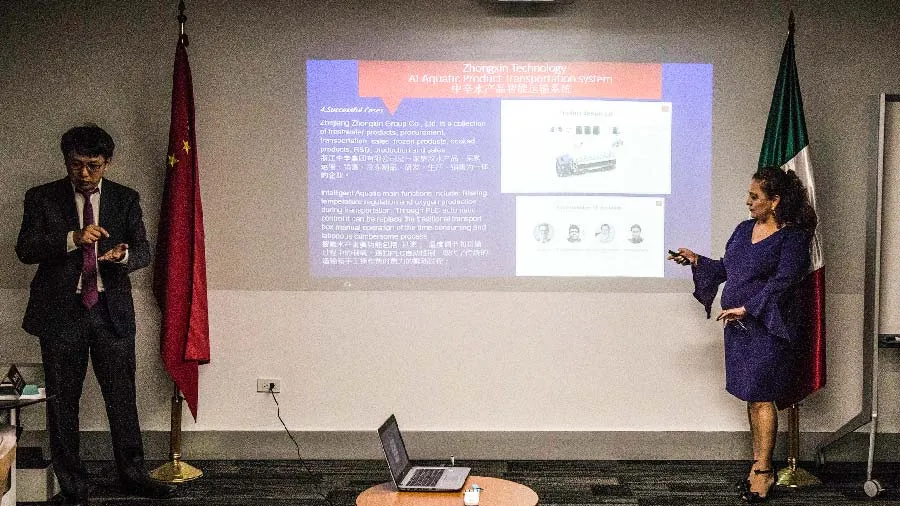
WITH AN EYE TO A LONG-LASTING PARTNERSHIP
Salvador Alva, President of Tecnológico de Monterrey, and David Garza, Rector of this institution were present at the meeting.
They both presented the Chinese delegation with the institution’s 2030 vision and the Tec21 Educational Model of challenge-based learning with a flexible structure, which combines academic experience with inspiring teachers and a memorable university experience.
These are both projects that the Tec is proposing for the future of education.
“We’ve decided to reinvent our 2030 vision, which includes 3 main elements: leadership, innovation, and entrepreneurship for human development, which we feel is a university’s most important raison d´être”, said Salvador.
For her part, Liang Liming, Vice Chairwoman of the Standing Committee of the People’s Congress for the province of Zhejiang, where Hub Tec-China is located, reiterated her intention to continue working with the Tec.
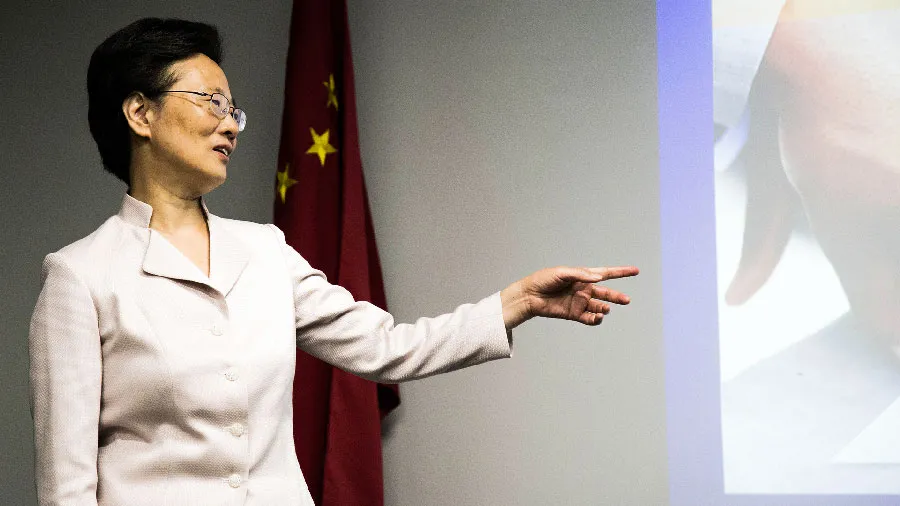
“You have an overriding goal to shape talents so that they adapt to future developments. You have made a timely decision to set up an innovation hub in our country”, said Liang.
Liang also listed some advantages that Hangzhou offers as a space for innovation and entrepreneurship.
These included a significant number of business organizations within the Chinese market, as well as its status as a city of innovation and the willingness of the Chinese government to work with the province of Zhejiang.
“We sincerely hope that with the president’s support, your team and our team can give more support to this university’s innovation hub”, she said.
“We have a popular saying: in heaven there is paradise, on Earth there is Hangzhou”, concluded Liang.
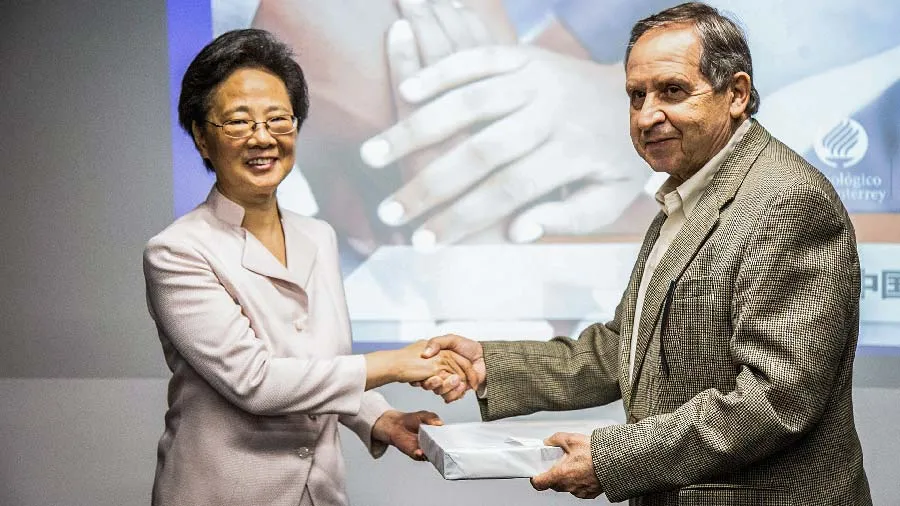
The meeting ended with an exchange of gifts from both countries.
In May 2019, the Tec announced the inauguration of Innovation Hub Tec-China in the city of Hangzhou, in the province of Zhejiang, China.
The aim of the Hub is to link this Mexican institution with successful entrepreneurship and innovation ecosystems in the Chinese market.
This will be achieved through the creation of business opportunities via the exchange of talent and technology between China and the Tec, to the benefit of this Asian city and Mexico.
READ ALSO:

